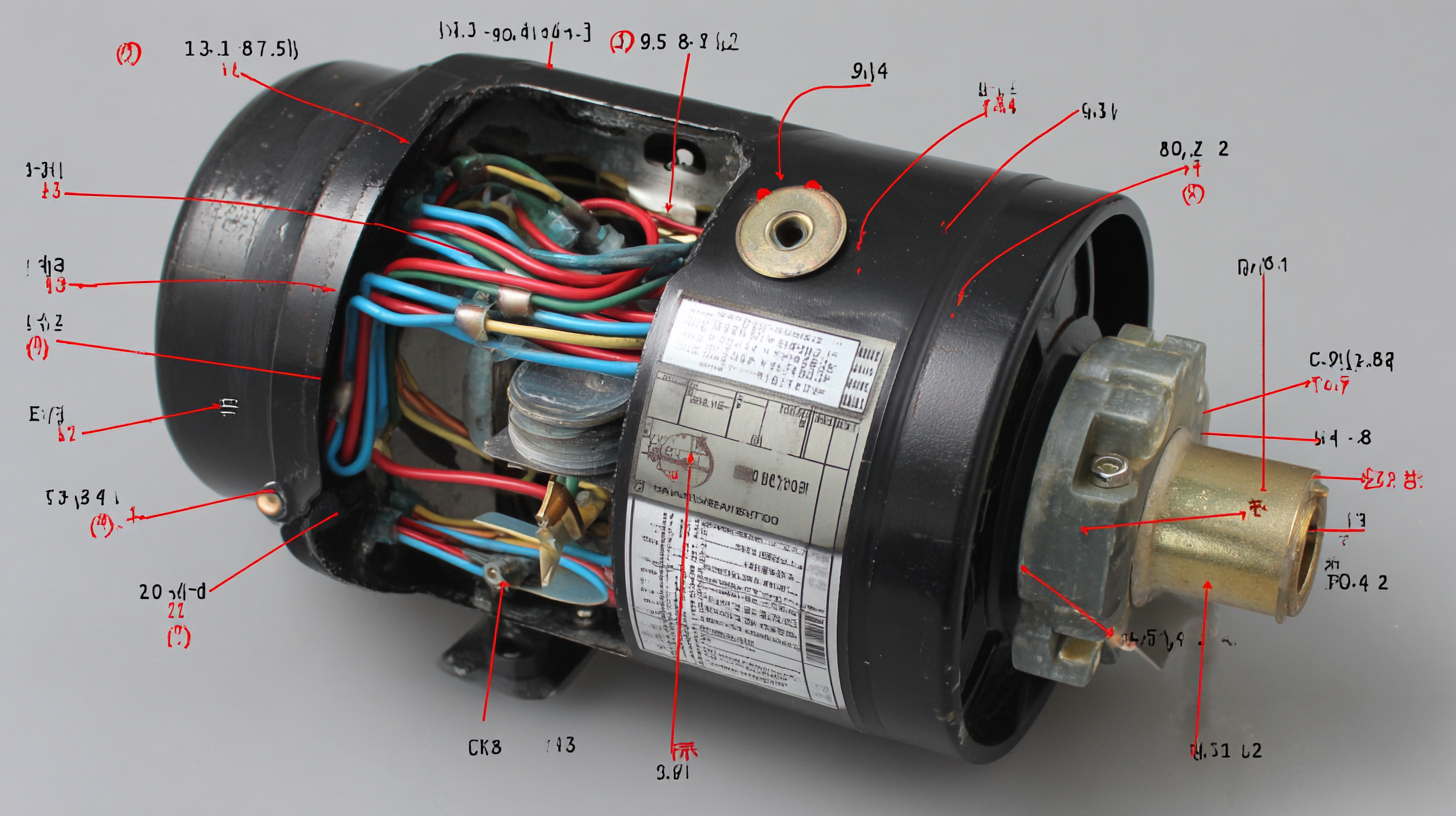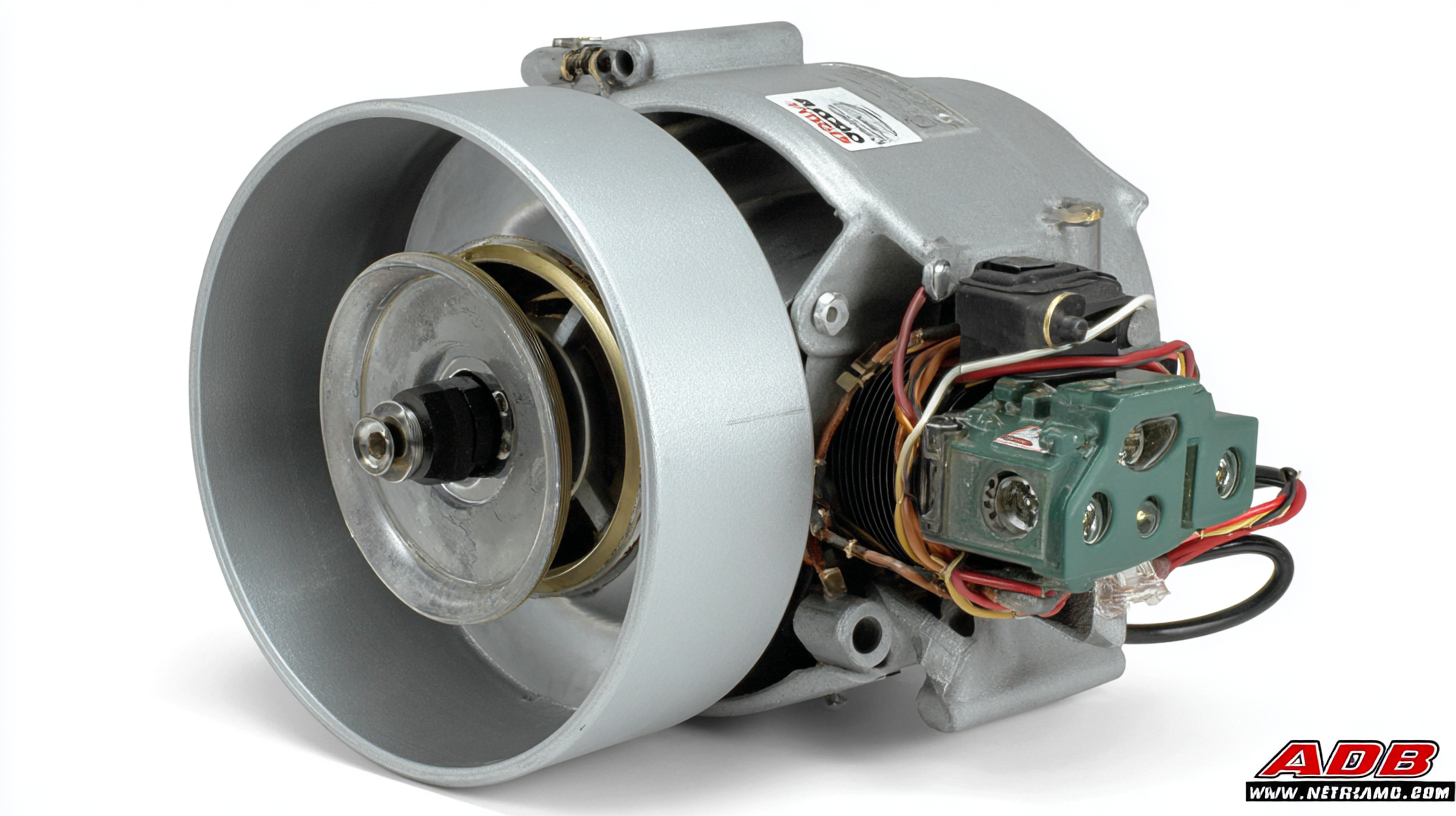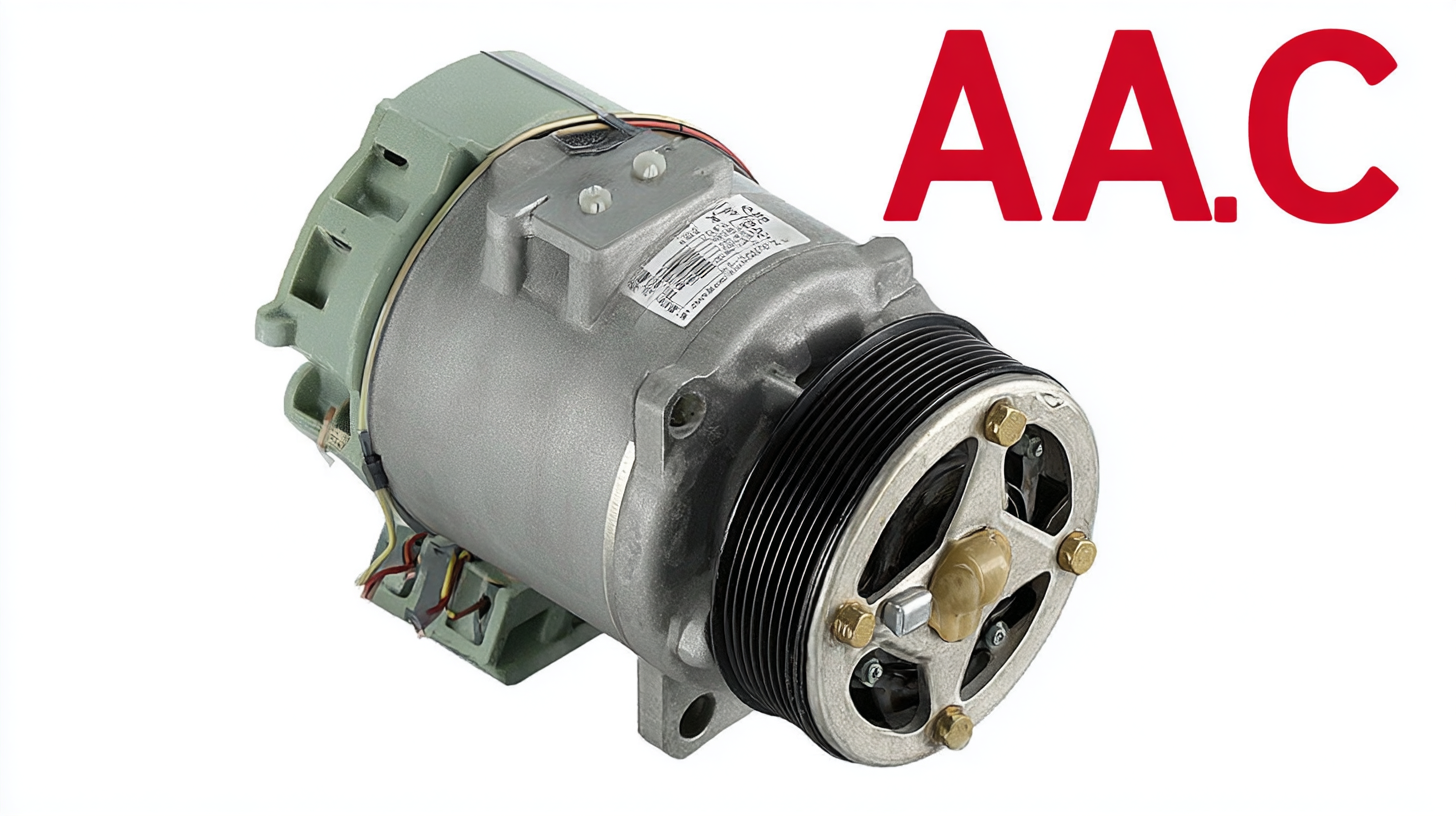




In the realm of HVAC systems, choosing the right AC Blower Motor is crucial for ensuring optimal airflow and energy efficiency. Understanding the specifications and the factors that influence your selection can significantly impact your comfort and utility costs.

This blog will delve into the critical aspects of AC Blower Motor specifications, including horsepower, voltage, and speed options, while also examining the reasons why these features matter for your specific needs.
Whether you are a homeowner looking to replace an old motor or a contractor seeking guidance for installation, this comprehensive guide will equip you with the knowledge required to make an informed decision. Join us as we unlock the secrets to selecting the best AC Blower Motor and ensure your system operates at peak performance.
Understanding AC blower motors is essential for anyone involved in HVAC systems. These motors play a critical role in regulating airflow within heating and cooling units, ensuring that conditioned air reaches every corner of a home or building. At the core of their function, AC blower motors are responsible for drawing air through the system, promoting efficient operation and maintaining comfort levels.
They work hand in hand with other components, such as heat exchangers and evaporators, to deliver optimal performance.
The specifications of AC blower motors can vary widely, affecting their efficiency and suitability for different applications. Factors such as horsepower, voltage, and speed ratings all come into play when selecting the right blower motor for a specific HVAC setup. Understanding these specifications allows technicians and homeowners alike to choose a motor that not only meets performance needs but also adheres to energy efficiency standards.
By grasping the fundamentals of these motors and their significance in HVAC systems, users can make informed decisions, leading to better comfort and lower energy costs.
 When selecting an AC blower motor, several key specifications must be carefully considered to ensure optimal performance and efficiency. First and foremost, motor type is critical; most residential and commercial applications utilize either permanent split capacitor (PSC) or electronically commutated motors (ECM). According to the U.S. Department of Energy, ECMs can be up to 30% more energy-efficient than PSC motors, which can lead to significant cost savings over time.
When selecting an AC blower motor, several key specifications must be carefully considered to ensure optimal performance and efficiency. First and foremost, motor type is critical; most residential and commercial applications utilize either permanent split capacitor (PSC) or electronically commutated motors (ECM). According to the U.S. Department of Energy, ECMs can be up to 30% more energy-efficient than PSC motors, which can lead to significant cost savings over time.
Another vital specification is the airflow capacity, typically measured in cubic feet per minute (CFM). The ideal CFM rating depends on the system's design and the size of the area being serviced. For instance, a standard HVAC system might require upwards of 400 CFM per ton of air conditioning, based on ASHRAE guidelines. Matching the CFM rating of the blower motor with the system's requirements is essential to maintain balanced airflow throughout the HVAC system.
Finally, pay attention to the physical dimensions and mounting configurations of the blower motor. As noted in industry reports by the Air-Conditioning, Heating, and Refrigeration Institute (AHRI), improper sizing can lead to installation issues and reduced overall system efficiency. Ensuring that the motor fits correctly in the existing setup is as crucial as its performance specifications. By focusing on these key aspects, users can make informed choices when selecting an AC blower motor that enhances their system's effectiveness.
When selecting an AC blower motor, understanding the different types available is essential. Generally, AC blower motors fall into three main categories: shaded pole motors, permanent split capacitor (PSC) motors, and electronically commutated motors (ECMs). Shaded pole motors are simple, cost-effective, and commonly used in low-power applications, but they are less efficient. In contrast, PSC motors offer better efficiency and performance, making them ideal for medium-sized HVAC systems. ECMs lead the market in energy efficiency, often boasting over 70% efficiency compared to their traditional counterparts.
Tip: When choosing a blower motor, consider the efficiency ratings and the specific requirements of your HVAC system. Look for motors that comply with the latest Department of Energy (DOE) efficiency standards, which can provide substantial energy savings in commercial and residential settings.
The application of the blower motor significantly influences its specifications. For instance, in larger commercial spaces requiring higher airflows, ECMs are frequently recommended due to their ability to adjust airflow based on demand, resulting in reduced energy consumption and lower operating costs. According to a report by the Air Conditioning, Heating, and Refrigeration Institute (AHRI), upgrading to ECMs in older systems can yield energy savings of up to 30%.
Tip: Always check the International Efficiency Rating (IER) when selecting blower motors for your HVAC system, as this can aid in identifying the most suitable option for your specific needs.

When choosing the right AC blower motor for your needs, understanding specifications and performance metrics is crucial. The right motor can enhance the efficiency of your HVAC system, improving air circulation and reducing energy consumption. Industry reports highlight that upgrading to high-efficiency blower motors can lead to a 30% reduction in energy use compared to traditional models. This is particularly relevant as many homeowners are looking to optimize their systems to mitigate rising energy costs.
Additionally, it is essential to consider the reliability and safety features of AC blower motors. Recent recalls have underscored the importance of evaluating product quality; for example, certain vehicles were recalled due to potentially failing blower motors, which can pose fire risks. Investing in certified, high-quality blower motors, supported by reputable manufacturers, can help prevent such issues. When selecting a motor, look for features such as electronically commutated motors (ECMs), which provide greater efficiency and quieter operation, making them an excellent choice for modern HVAC systems.
| Specification | Details |
|---|---|
| Motor Type | Permanent Split Capacitor (PSC) |
| Voltage | 115V or 230V |
| Power Rating | 1/3 HP to 1 HP |
| Speed | Single Speed or Multi-Speed |
| Airflow Capacity | 300 to 2000 CFM |
| Motor Mounting Style | Direct Drive or Belt Drive |
| Safety Features | Overload Protection, Thermal Protection |
| Efficiency Rating | Up to 90% Efficiency |
| Weight | 10 to 40 lbs |
Maintaining your AC blower motor is crucial for ensuring efficiency and longevity. Regular checks can prevent minor issues from becoming significant problems. One of the first steps in maintenance is cleaning the motor and surrounding components. Dust and debris can accumulate, leading to overheating and decreased performance. Utilizing a soft brush and a vacuum can help remove these particles. Additionally, inspect the blower fan for any signs of wear or damage — replacing worn parts early can save time and money down the line.
Another important maintenance tip is to routinely check and replace air filters. A clogged filter restricts airflow, forcing the blower motor to work harder than necessary. This not only affects cooling efficiency but can also lead to motor burnout. It's advisable to replace filters every 1-3 months during peak usage seasons. Furthermore, lubricating the motor's bearings can reduce friction and noise, contributing to smoother operation. Keeping a consistent maintenance schedule promotes optimal performance, allowing your AC system to serve you reliably for years.
This chart displays essential specifications for AC blower motors, highlighting important metrics such as horsepower, voltage, efficiency, airflow, and noise level. Understanding these aspects can help in selecting the right blower motor for optimal performance and longevity.


